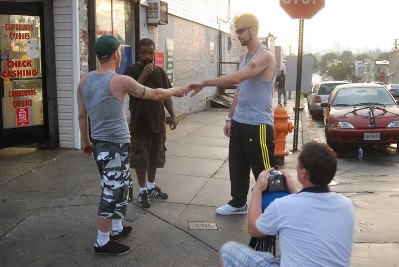Cory Maye: Drug War Victim Gets a New Trial
The battle over the fate of drug war victim Cory Maye has been fought quietly in court for the last several months, but Radley Balko brings the long-awaited & exciting news that Maye has been granted a new trial. Â
For those new to the case, Maye is a young, single father whose home in Prentiss, MS was raided by police in the middle of the night in late 2001. Unaware that the intruders were police and fearing for the safety of his infant daughter, Maye opened fire and killed an officer. As it turned out, the warrant was for the neighboring unit and Maye had nothing illegal, except marijuana ashes. Nevertheless, Maye was convicted of capital murder and sentenced to death. The case has become widely regarded as a classic example of how aggressive drug war police tactics can lead to terrible misunderstandings and injustices.
But it's also become an inspiring illustration of how bloggers and activists can effectively use the internet to fight for justice. Radley Balko's initial coverage of the case at his blog, The Agitator, ignited national interest in Maye's plight. The case drew the attention of an attorney at the prestigious law firm Covington & Burling, which offered to represent Maye pro bono. That changed everything. Maye's death sentence was challenged and overturned. Then, last week, it was announced that Maye will receive a new trial altogether, one in which he will enjoy superb representation and his best chance yet at securing his freedom once and for all.
It's an incredible story that we'll continue to follow as the new trial approaches. For more detailed background on the case, check out Radley Balko's award-winning 2007 report at Reason.
Update: Reason.tv has a good piece on Maye's case as well:

